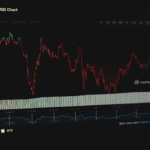As digital assets gain traction among institutional investors, understanding the intricacies of executing a trade is paramount. Beyond market trends and asset selection, factors like custody, slippage, fees, and compliance play crucial roles in ensuring secure and efficient transactions. This guide delves into these aspects, providing data-backed insights to bolster investor confidence.

1. Custody: Securing Your Digital Assets
Custody refers to the secure storage and management of digital assets. For institutional investors, choosing a reliable custodian is essential to mitigate risks such as theft or loss of private keys. According to PwC, institutions must comply with regulations like the Bank Secrecy Act and Anti-Money Laundering measures, ensuring robust security protocols are in place,
Platforms like Anchorage Digital offer institutional-grade custody services, utilizing hardware security modules to safeguard assets. As of 2024, Anchorage holds over $45 billion in assets under custody, underscoring the growing trust in secure custodial solutions.
2. Slippage: Managing Price Variability
Slippage occurs when the execution price of a trade differs from the expected price, often due to market volatility or low liquidity. A study by Roland Berger indicates that slippage can significantly impact trading costs, especially in high-frequency trading scenarios.
To mitigate slippage:
- Use Limit Orders: Set a maximum or minimum price to control execution.
- Trade During High Liquidity Periods: Avoid trading during market openings or closings when volatility is higher.
- Choose Reputable Exchanges: Opt for platforms with deep order books and high trading volumes.
3. Fees: Understanding the Cost Structure
Digital asset trading involves various fees, including transaction, withdrawal, and platform fees. According to a report by Capco, high transaction fees can deter institutional investors from engaging in digital asset markets.

When evaluating fees:
- Compare Across Platforms: Different exchanges have varying fee structures.
- Consider Hidden Costs: Account for withdrawal fees and spreads.
- Evaluate Fee Tiers: Some platforms offer reduced fees for high-volume traders.
4. Compliance: Navigating Regulatory Landscapes
Compliance ensures that digital asset transactions adhere to legal and regulatory standards. The U.S. Securities and Exchange Commission (SEC) emphasizes the importance of compliance in digital asset trading, particularly concerning custody rules and investor protection.
Key compliance considerations:
- Know Your Customer (KYC): Verify the identity of clients to prevent fraud.
- Anti-Money Laundering (AML): Implement measures to detect and report suspicious activities.
- Regulatory Reporting: Ensure timely and accurate reporting to relevant authorities.
Work With Kenson Investments
Executing a digital asset trade involves more than just market analysis. By understanding and addressing custody, slippage, fees, and compliance factors, investors can navigate the complexities of digital asset markets with confidence. Partnering with experienced consultants and utilizing secure platforms can further enhance the trading experience, ensuring both profitability and regulatory adherence.
Ready to optimize your digital asset trading strategy? Partner with Kenson Investments, a leading digital asset strategy consulting firm, to navigate the complexities of the digital asset landscape. Our team of blockchain asset investments consultants offers tailored solutions to meet your investment goals. Contact us today to start your journey towards informed and secure digital asset investments.
Disclaimer: The information provided on this page is for educational and informational purposes only and should not be construed as financial advice. Crypto currency assets involve inherent risks, and past performance is not indicative of future results. Always conduct thorough research and consult with a qualified financial advisor before making investment decisions.
“The crypto currency and digital asset space is an emerging asset class that has not yet been regulated by the SEC and US Federal Government. None of the information provided by Kenson LLC should be considered as financial investment advice. Please consult your Registered Financial Advisor for guidance. Kenson LLC does not offer any products regulated by the SEC including, equities, registered securities, ETFs, stocks, bonds, or equivalents”














